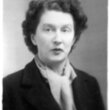Border districts: a fiction
Description
A bittersweet farewell to the world and the word by the Australian master“The mind is a place best viewed from borderlands . . .”Border Districts, purportedly the Australian master Gerald Murnane’s final work of fiction, is a hypnotic, precise, and self-lacerating “report” on a life led as an avid reader, fumbling lover, “student of mental imagery,” and devout believer—but a believer not in the commonplaces of religion, but rather in the luminescence of memory and its handmaiden, literature. In Border Districts, a man moves from a capital city to a remote town in the border country, where he intends to spend the last years of his life. It is time, he thinks, to review the spoils of a lifetime of seeing, a lifetime of reading. Which sights, which people, which books, fictional characters, turns of phrase, and lines of verse will survive into the twilight? A dark-haired woman with a wistful expression? An ancestral house in the grasslands? The colors in translucent panes of glass, in marbles and goldfish and racing silks? Feeling an increasing urgency to put his mental landscape in order, the man sets to work cataloging this treasure, little knowing where his “report” will lead and what secrets will be brought to light. Border Districts is a jewel of a farewell from one of the greatest living writers of English prose.
More Details
Similar Titles From NoveList
Similar Authors From NoveList
Published Reviews
Booklist Review
Murnane's unnamed or nameless first-person narrator has moved to a small town near the border, where he composes a report about his memories of images. Images trigger memories; the narrator recalls and expounds on images from an image world. If this sounds odd, it is. I seem to recall not certain feelings, but, rather, the fact of my having once felt these feelings. What is remembered is less memorable than the settings in which the narrator's memories were formed. The narrator recalls not what he read but where he was when he read it; not the winner of horse races but where he was when he followed them; not how he felt about the Virgin Mary when he believed but a particular image of her. Acclaimed Australian author Murnane has said that this is his final novel. While reading this extraordinary work, some may envision the border the narrator has moved near to as the divide between life and death and interpret this report as a scrupulous accounting of what remains of what came before.--Autrey, Michael Copyright 2018 Booklist
Publisher's Weekly Review
Devotees of Murnane (The Plains), the exacting Australian writer of crafty, austere fictions, will find familiar themes in this prismatic work: the fascination with color, the grassy landscapes, and the obsessive compiling of a mind's "image-history." The aged narrator, a "student of colors and shades and hues and tints," has retired to a "district near the border" of his unnamed native land. There he explores the regions of his psyche with a monklike devotion, "study[ing] in all seriousness matters that another person might dismiss as unworthy, trivial, childish." These include his lifelong enchantment with marbles and stained glass, his mental album of "image-heroines" (the Madonna, Thomas Hardy's Tess), and a remembered line from Virgil's Aeneid about the reddening dawn. He looks at his surroundings askance to make himself "more alert to what appears at the edges of [his] range of vision," attuning himself to the borderlands of his senses, as it were. He is punctilious in scrutinizing his own narration, insisting on classifying his text as a "report of actual events" and including compositional updates ("While I was writing the previous sentences...") and revisions as he goes. Murnane's mysterious, exquisitely constructed novel lingers with the reader just like the images that have indelibly imprinted themselves on the narrator's mind. (Apr.) © Copyright PWxyz, LLC. All rights reserved.
Kirkus Book Review
An old man ruminates on landscapes and houses, authors and religion, colored glass and memory in this drifting quasi-fiction.The unnamed narrator, age 72, has recently moved from a city to live alone in a "quiet township" near an unspecified border in an unnamed country. In the opening pages, he recalls his school days and the religious brothers who taught him. The colored glass in a church window sparks memories of a book that describes men during the Commonwealth period in the 17th century smashing the stained-glass windows of churches in England. A partial picture of the narrator emerges with references to teaching, marriage, children, relatives, and childhood horse-racing interests. But there's little ongoing narrative, just vignettes scattered among musings on visual perception and recollections of houses, books, and colored glass. The preoccupations with how one has seen the world and with memory suit an older man and a writer; the prose, with its precision, repetition, and verbal footnotes, smacks of an academic lecturer. Despite the subtitle, the narrator insists he is "not writing a work of fiction" but recording a "sequence of images," or "a chain of thoughts." The chain in one 12-page stretch includes a Proust allusion, a book jacket's author photo, childhood marbles, a kaleidoscope bought in Virginia, the colored glass in kaleidoscopes, 120 colored pencils, and marbles on a carpet which the narrator moves in the hope that a chance arrangement "would restore to me some previously irretrievable mood." In search of lost marbles? No, the narrator is utterly rational. The sui generis Australian writer Murnane (The Plains, 2017, etc.) is at least eccentric. He seems to be showing how a writer's mind works when he is writing and when he is riffling through or riffing on vision, insight, and memories.A fascinating, provocative, sometimes frustrating read; the stylistic tics may grow tiresome but Murnane's intriguing ideas and oblique angles rarely do. Copyright Kirkus Reviews, used with permission.
Booklist Reviews
Murnane's unnamed or nameless first-person narrator has moved to a small town near "the border," where he composes a report about his memories of images. Images trigger memories; the narrator recalls and expounds on images from an image world. If this sounds odd, it is. "I seem to recall not certain feelings, but, rather, the fact of my having once felt these feelings." What is remembered is less memorable than the settings in which the narrator's memories were formed. The narrator recalls not what he read but where he was when he read it; not the winner of horse races but where he was when he followed them; not how he felt about the Virgin Mary when he believed but a particular image of her. Acclaimed Australian author Murnane has said that this is his final novel. While reading this extraordinary work, some may envision the border the narrator has moved near to as the divide between life and death and interpret this report as a scrupulous accounting of what remains of what came before. Copyright 2018 Booklist Reviews.
Library Journal Reviews
Winner of the Patrick White Literary Award, Australian author Murnane gets a two-for-one breakout opportunity. Border Districts portrays an older man who moves from the capital city to an isolated border town to put his mental landscape together, while the stories in Stream System deal with war and misogyny, colonialism and racism in envelope-pushing format.
Copyright 2017 Library Journal.Publishers Weekly Reviews
Devotees of Murnane (The Plains), the exacting Australian writer of crafty, austere fictions, will find familiar themes in this prismatic work: the fascination with color, the grassy landscapes, and the obsessive compiling of a mind's "image-history." The aged narrator, a "student of colors and shades and hues and tints," has retired to a "district near the border" of his unnamed native land. There he explores the regions of his psyche with a monklike devotion, "study in all seriousness matters that another person might dismiss as unworthy, trivial, childish." These include his lifelong enchantment with marbles and stained glass, his mental album of "image-heroines" (the Madonna, Thomas Hardy's Tess), and a remembered line from Virgil's Aeneid about the reddening dawn. He looks at his surroundings askance to make himself "more alert to what appears at the edges of range of vision," attuning himself to the borderlands of his senses, as it were. He is punctilious in scrutinizing his own narration, insisting on classifying his text as a "report of actual events" and including compositional updates ("While I was writing the previous sentences...") and revisions as he goes. Murnane's mysterious, exquisitely constructed novel lingers with the reader just like the images that have indelibly imprinted themselves on the narrator's mind. (Apr.)
Copyright 2018 Publishers Weekly.































